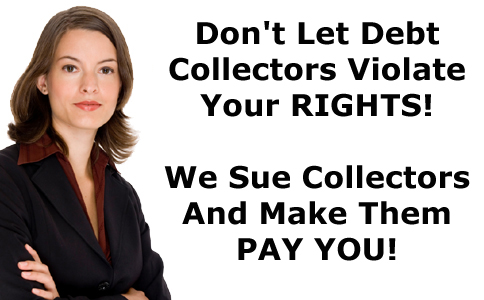Telephone Consumer Protection Act (TCPA)
The telephone Consumer Protection Act (TCPA) was passed in 1991. It was in 2003 that the Federal Trade Commission formed the National Do-Not-Call Registry. It prohibits calls from telemarketers and it also includes debt collectors for solicitations or collections to the people who don’t want them.
A consumer can claim $500 and maybe up to $1,500 for every phone call and/or text message that is made by telephone solicitors and/or debt collectors.
Get your FREE consultation. CALL TODAY 877.201.0613
The Following Rules Should Be Followed By Telephone Solicitors:
- Solicitors are not allowed to use telephone equipment that is automated or prerecorded or uses an artificial voice to cell phone. Nor are they allowed to use any service where the person receiving the call must pay for the phone call and/or after a consumer demands they stop.
- Solicitors are not allowed to send advertising through text messages or faxes.
- Solicitors are not allowed to use artificial recording or artificial voice calls.
- Solicitors must provide specific information such as their name, the name of an individual or organization for whom they are calling on behalf of, and the phone number and/or address where they can be contacted.
- The National Do-Not-Call Registry must be honored by solicitors. The callers have 31 days to remove a number and calls to you from the time the number is registered.
The Following Rules Should Be Followed By Banks And Collection Agencies:
- Consent must be obtained before they text or call your cellular phone.
- After you’ve demanded the caller stop, they must not place any auto-dialed or text calls to your cellular phone.
- They must call using real phone numbers and refrain from using phony numbers.
- Debt buyers and debt collectors have very specific restrictions.
You should contact our law office as soon as possible if you think you have been victim of telephone solicitations including debt collection phone calls or SMS texts that were unwanted. The Law Offices of Michael Lupolover will assist you every step of the way. Contact us now at 877.201.0613 if you think your rights have been violated.
Anytime you request that a company you have a business connection with to take your phone number off their list or to put it on their do-no-call registry, they must obey your request. Also, if a 3rd party is calling for a charitable organization or business, you as the consumer have the right to request that you not get any more phone calls from that specific organization or business.
The moment your personal phone or cell phone number has been on the National Do-Not-Call Registry, any call that is live, automated, from an organization or 3rd party marketer calling for a charity or business are governed by the Telephone Consumer Protection Act’s guidelines.
What Exactly Is TCPA or Telephone Consumer Protection Act?
In 1991, the Telephone Consumer Protection Act (TCPA) was approved by United States Congress. It was made law when President George H. W. Bush signed it as Public Law 102-243. The TCPA limits the use on telephone equipment that is automated and on telephone solicitations. The TCPA also imposes boundaries on the use of automated dialing systems, prerecorded or simulated voice communications, fax machines, and SMS messages. It also has specific technical criteria for facsimile machines, voice communication systems and auto dialers – mainly with requirements for i.d. and contact data of the individual using the systems to be included in the messages.
How Do I Know What Telephone Solicitation Is?
A phone solicitation can be a phone call that is used as a commercial ad. The term doesn’t incorporate phone calls or communications placed with your prior authorization, by or with respect to a tax-exempt not-for-profit organization, from the individual or group in which you possess an established business relationship.
How To Know What an Established Business Relationship Is?
An Established Business Relationship (EBR) is present when you have made a query, purchase, application, or transaction with regard to goods and services offered by an individual or organization involved. Commonly, you may stop that relationship by informing the individual or organization to never place solicitation phone calls to your residence any more. Furthermore, the EBR is in place for eighteen months following your last business exchange or 3 months after your last query or application. Once this time has passed, calls placed to your residence contact number or numbers by that person or organization are viewed as telephone solicitations governed by the do-not-call rules.
What is the National Do-Not-Call Registry?
The National Do-Not-Call Registry, maintained by the Federal Trade Commission, provides you with a chance to restrict the telemarketing phone calls you get to your residence or personal cell phones. As soon as you’ve put your number(s) within the national Do-Not-Call list, callers will be forbidden from making telephone solicitations to those number(s). Registration with the National Do-Not-Call Registry is not going to stop every call. An example would include calls originating from or regarding political institutions, charitable groups and telephone surveys would be allowed, so would calls from organizations for which established business relationship has been created. Business telephones and facsimiles are NOT protected through this registry.


